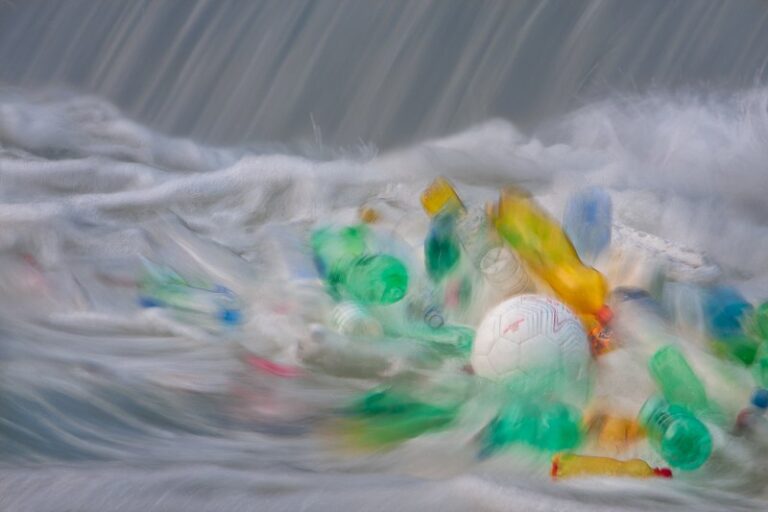Although plastic is a relatively new invention in human history, with some of the first examples dating back to the late 1800s, its versatility and low production costs have made it one of the most widely used materials in modern times. In Western Europe, annual per capita plastic consumption averages around 150 kg, more than double the global average of 60 kg.
Global consumption of plastic is accelerating. More than half of all plastic ever made has been produced since 2000, and current annual global production is expected to double by 2050. Of all plastic ever produced, only an estimated 9% has been recycled and 12% has been incinerated. The rest is still in use, disposed of in landfills, or released into the environment, including oceans.
A report from the World Economic Forum and the Ellen MacArthur Foundation predicts that if no action is taken to tackle the plastic problem, the mass of plastic in the oceans will exceed the mass of fish by 2050.
Due to the durability of plastics, discarded items remain in the environment for generations. The environmental impacts of discarded plastics include littering, leaching of toxic components, and contamination of ecosystems and food chains with microplastics, which can eventually reach humans and pose unknown health hazards.
Plastic production not only pollutes the environment but also contributes to climate change: annual emissions related to plastic production in the EU amount to around 13.4 million tonnes of CO2, which is roughly 20% of the chemical industry’s emissions in the European Union.


